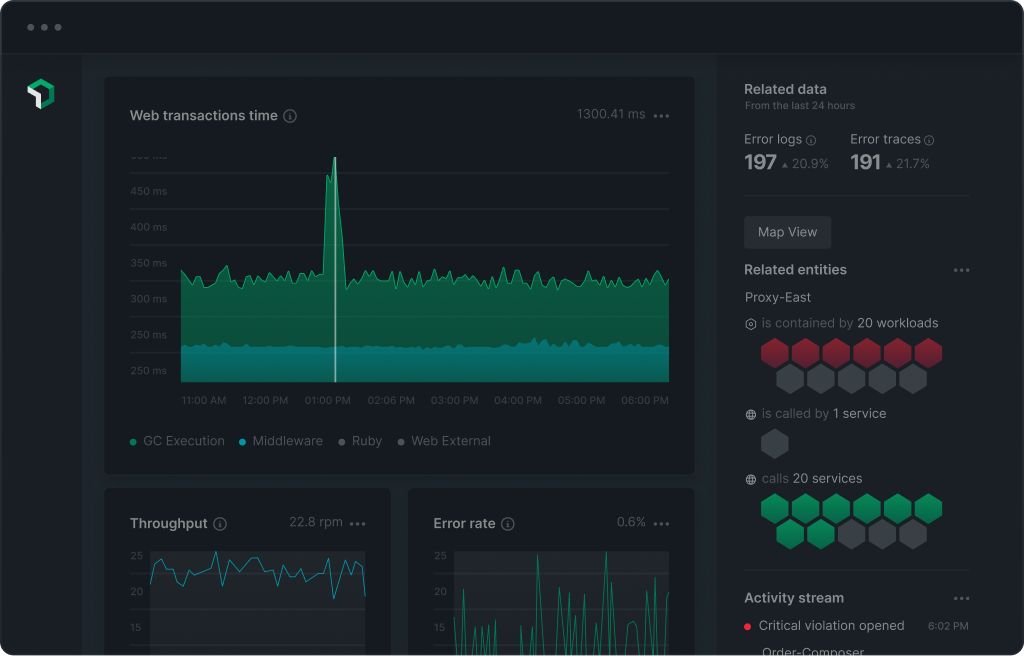Quickstart
Integration Features
Dashboards
Alerts
Documentation
dashboards
This quickstart doesn't include any dashboards. Do you think it should?
You can edit this quickstart to add helpful components. View the repository and open a pull request.
You can edit this quickstart to add helpful components. View the repository and open a pull request.
View repo
alerts
Kubernetes (OpenTelemetry) observability quickstart contains 18 alerts. These alerts detect changes in key performance metrics. Integrate these alerts with your favorite tools (like Slack, PagerDuty, etc.) and New Relic will let you know when something needs your attention.
Show MoreShow Less
1. More than 5 pods failing in namespace
Alert when more than 5 pods are failing in a namespace for more than 5 minutes
2. Persistent Volume has errors
Alert when Persistent Volume is in a Failed or Pending state for more than 5 minutes
3. Node is not ready
Alert when a Node is not ready for > 5 minutes
4. Pod cannot be scheduled
Alert when a Pod cannot be scheduled for more than 5 minutes
5. Container is Restarting
Alert when the container restart count is greater than 0 in a sliding 5 minute window
6. Statefulset is missing Pods
Alert when Statefulset is missing Pods for > 5 minutes
7. Node root file system capacity utilization is high
Alert when the average Node root file system capacity utilization is > 90% for more than 5 minutes
8. Container high cpu utilization
Alert when the average container cpu utilization (vs. Limit) is > 90% for more than 5 minutes
9. Container cpu throttling is high
Alert when container is being throttled > 25% of the time for more than 5 minutes
10. Container is Waiting
Alert when a container is Waiting for more than 5 minutes
11. Node allocatable cpu utilization is high
Alert when the average Node allocatable cpu utilization is > 90% for more than 5 minutes
12. Pod is not ready
Alert when a Pod is not ready for > 5 minutes
13. Deployment is missing Pods
Alert when Deployment is missing Pods for > 5 minutes
14. Daemonset is missing Pods
Alert when Daemonset is missing Pods for > 5 minutes
15. Node Pod count nearing capacity
Alert when the Running pod count on a Node is > 90% of the Node's Pod Capacity for more than 5 minutes
16. Job Failed
Alert when a Job reports a failed status
17. Container high memory utilization
Alert when the average container memory utilization (vs. Limit) is > 90% for more than 5 minutes
18. Node allocatable memory utilization is high
Alert when the average Node allocatable memory utilization is > 90% for more than 5 minutes
documentation
Kubernetes (OpenTelemetry) observability quickstart contains 1 documentation reference. This is how you'll get your data into New Relic.
Show MoreShow Less
